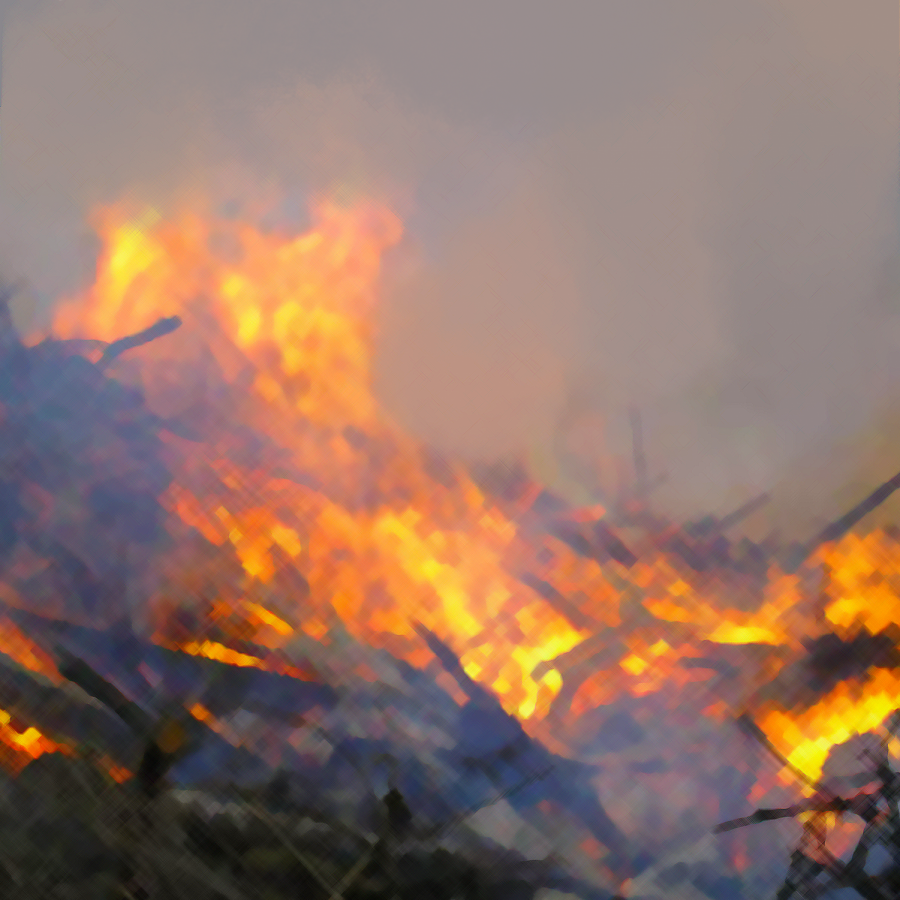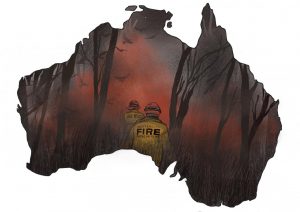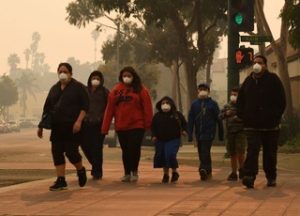How we can stop COVID-19 from hurting the government’s response to wildfires
COVID-19 has caused the government to lax its restrictions on firefighters, with early effects seen on the Florida wildfires already.
May 28, 2020
Springtime is usually the time when firefighters inspect and reduce brush that can fuel fires in summer and fall. But the novel coronavirus has halted such activities, and many more things firefighters do to help mitigate the effects of wildfires have also been stopped.
According to the New York Times, the same organizations used to fight wildfires are now being used to respond to the COVID-19 crisis, diverting attention away from wildfires, and “preseason meetings, where fire teams get together to share information and prepare for the upcoming fire season, have been canceled.”
According to the San Francisco Chronicle, the coronavirus pandemic has prompted “fire agencies across the West to cancel or delay programs aimed at preventing catastrophic wildfire.” According to NPR, the Los Angeles firefighting department has cancelled all of their training sessions as they involve people gathering together in large groups. According to the Los Angeles Times, “the outbreak [of COVID-19] has already forced departments to put large training exercises on hold, cancel controlled burns and delay inspections of fire-prone properties in Los Angeles.”
This is not just confined to California. According to the New York Times, the Center Coordinator for the Northwest Interagency Coordinating Center, which coordinates wildfire response in Oregon and Washington, cancelled their meeting “at which more than 300 people were expected.”
If government agencies don’t find a way to effectively train firefighters to prevent the spread of wildfires while at the same time preventing the spread of COVID-19, the wildfire season may be far more deadlier in 2020. For example, the SF Chronicle said “The U.S. Forest Service, which oversees more than half of California’s wildlands, announced last week that it was suspending all prescribed burns, one of the most effective tools for increasing California’s resiliency to fire.” With actions that were most effective in previous years curbed in order to stop the spread of COVID-19, new solutions need to be thought of and implemented, quickly.
Additionally, with climate change becoming a bigger problem in recent years, wildfires are expected to increase in number, so with more fires expected to hit places in increased quantities over the next few years, it is imperative that we continue to maintain the quality of our fire response systems.
“The ‘season’ of fires is becoming longer due to the shifts in climate, and some places are repeatedly being devastated by fires in short periods of time with little chance for recovery in between,” said AP Environmental Science teacher Annie Nguyen.
The recent wildfires in Florida have already proven the dangerous consequences behind not maintaining the quality of fire departments. 1600 people were forced to evacuate their homes and were put into either shelters or hotels to lower the spread of COVID-19 and 18 homes burned down. A portion of Interstate 10 was also closed.
“[The Florida wildfires] also had an impact on native species,” said Apritha Parthasarathy, president of National Green Schools Society, an environmental club on campus. “In addition, the smoke caused by the fires pollutes the air and water species need to survive and could cause the local species to become threatened or extinct.”
“Natural habitats have been lost and the organisms that have been displaced are potentially now seeking refuge in cities,” said Nguyen. “Air quality is dramatically impacted with the severe amount of smoke, soot, and ash that are released.”
The Florida wildfires destroyed 2000 acres, significantly less than the amount of land destroyed by the Amazon fires (2 million acres) and the Australian bushfires (46 million acres), but they are still “equally as important,” said Parthasarathy.
While all of these statistics are much less than other wildfires (such as the 2018 Camp Fire in California), as Florida only experiences wildfires every five years according to St. Johns County Emergency Management, the fact that a state which rarely experiences wildfires experienced one to this magnitude is a major problem, and points to the holes in firefighters’ wildfire training this spring.
As wildfires similar to the Florida wildfires continue to increase in quantity over the last few years due to climate change, the importance of keeping the quality of our firefighting department at a high level has never been greater. If we want to prevent another wildfire like the Florida wildfires from occurring in the United States over the next year, then drastic and different measures need to be taken that would make up for the wildfire-preventing activities unable to be done during the spring.
If we want to more effectively fight wildfires while still keeping our firefighters safe, the government needs to continue the training they give firefighters in a regular year while also discussing ways to fight fires effectively while socially distancing to protect the health of firefighters. Only then can we help mitigate the effects of wildfires in an age of coronavirus.
“Hopefully, just like the species that have evolved to be fire-resistant and even fire-dependent, we as humans can at least respond to these events with better environmental controls to reduce fire risks and prevent further loss of life and habitats,” said Nguyen.






